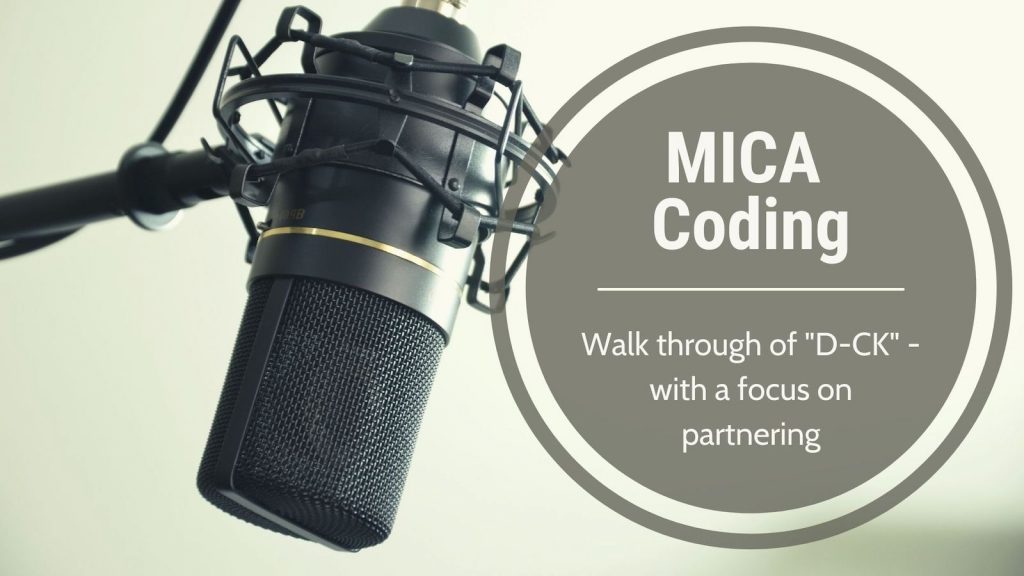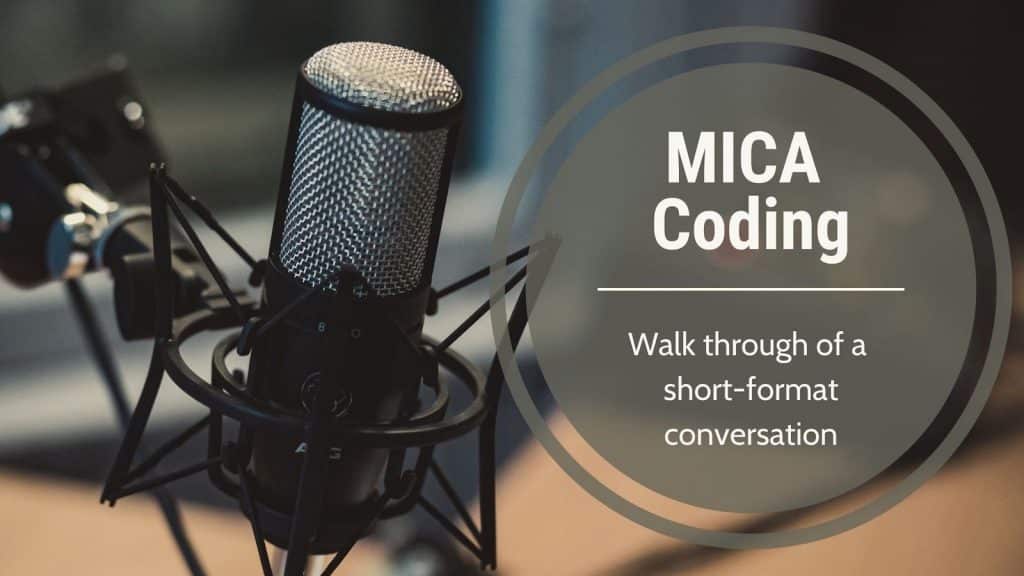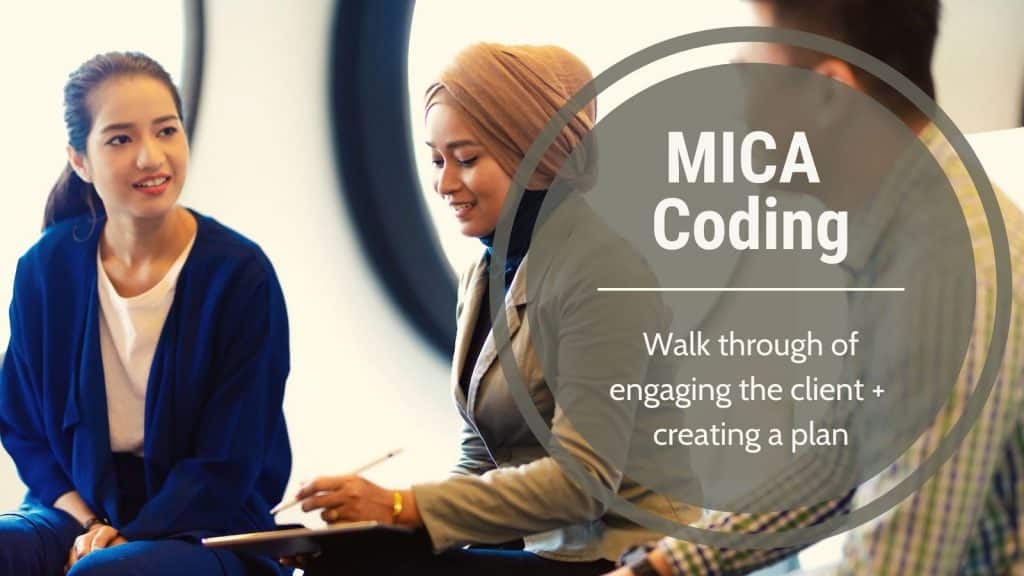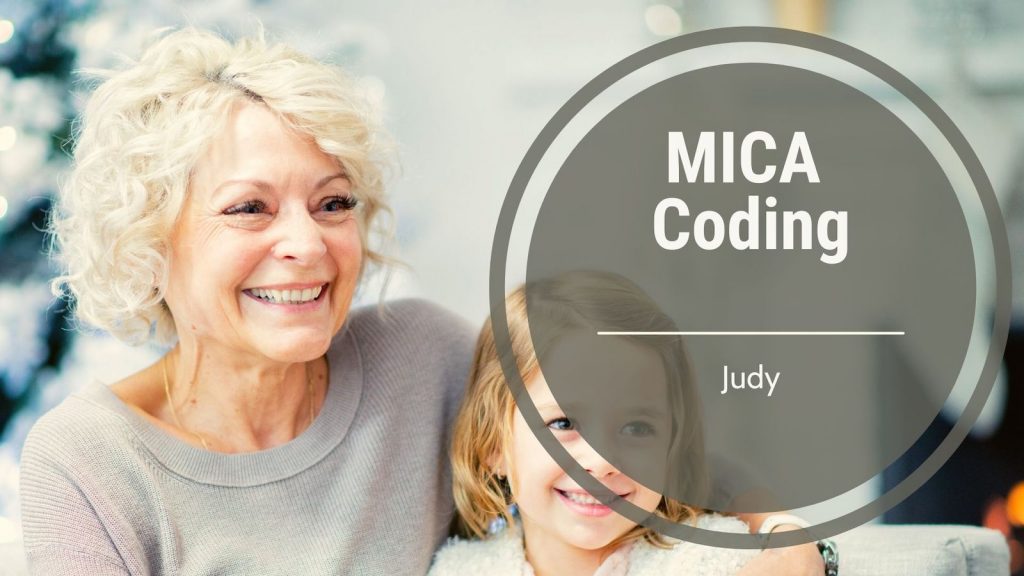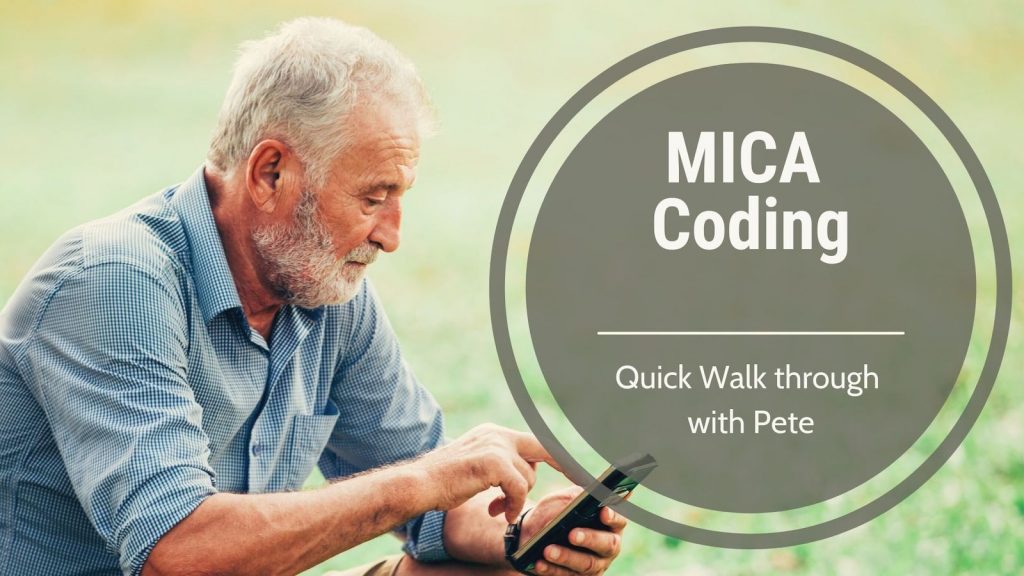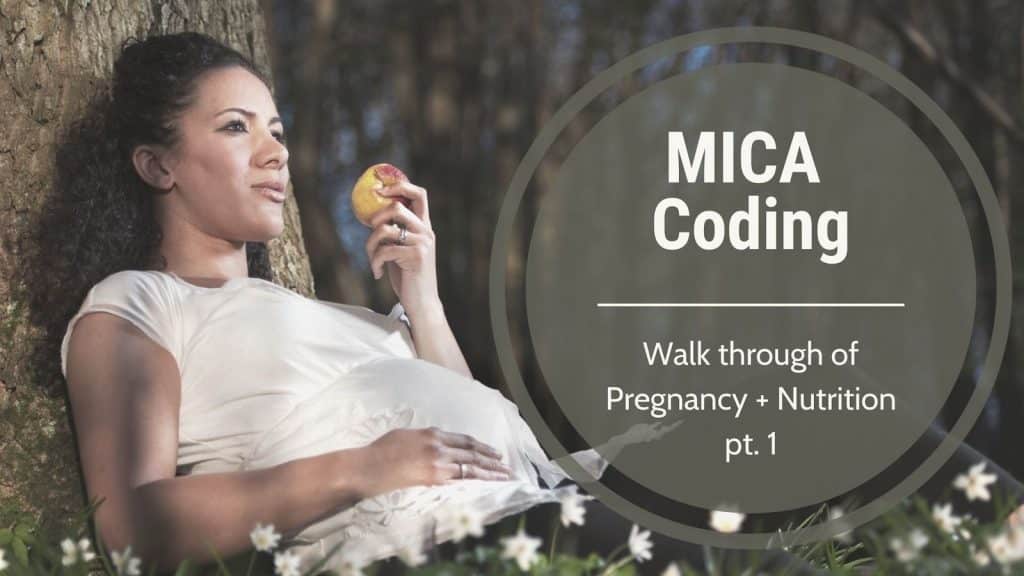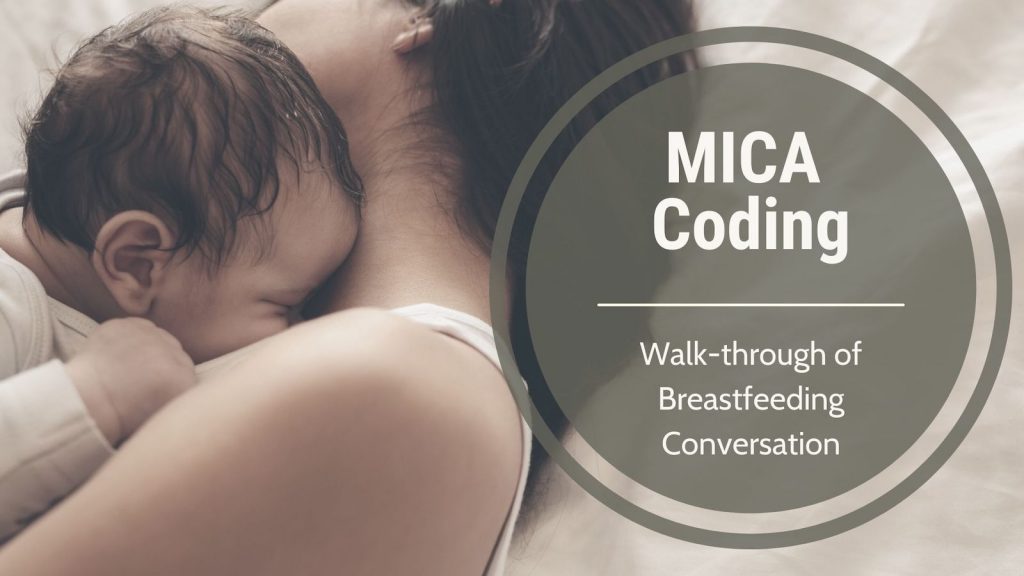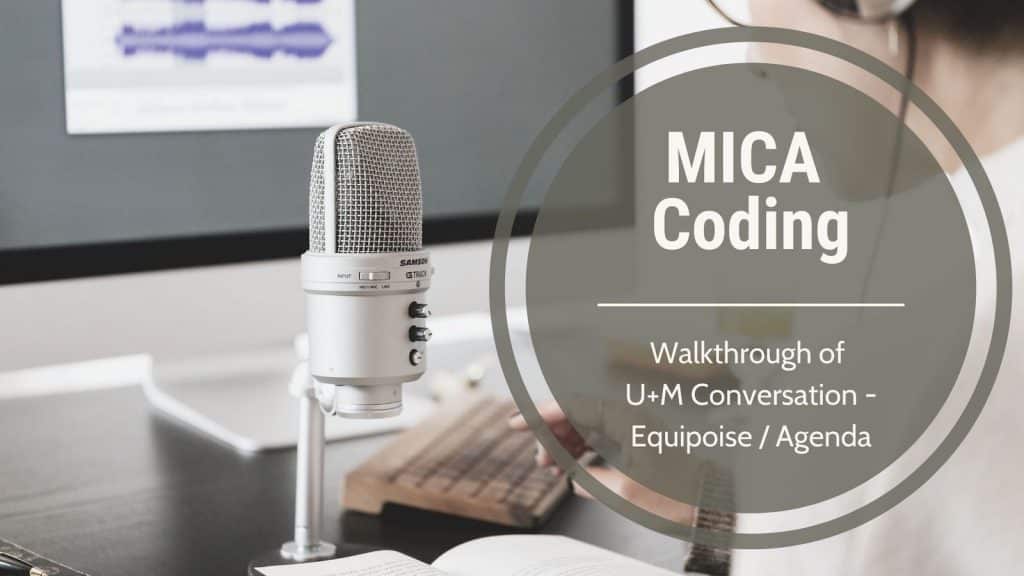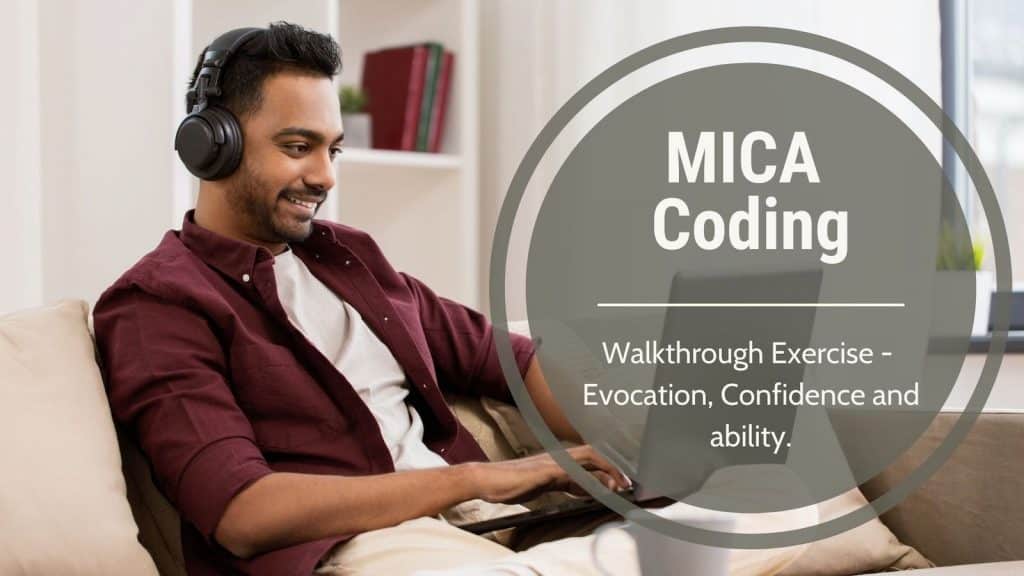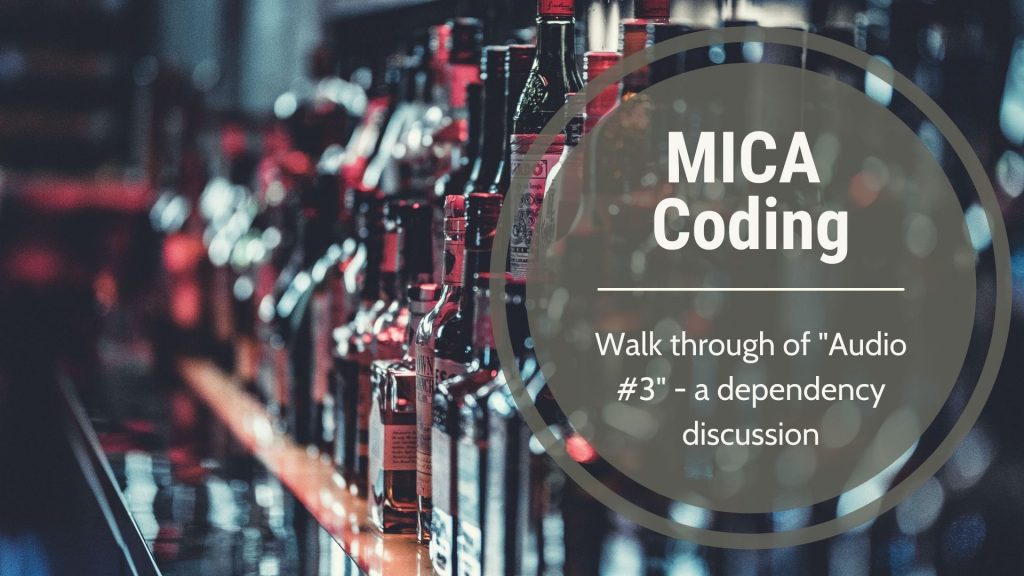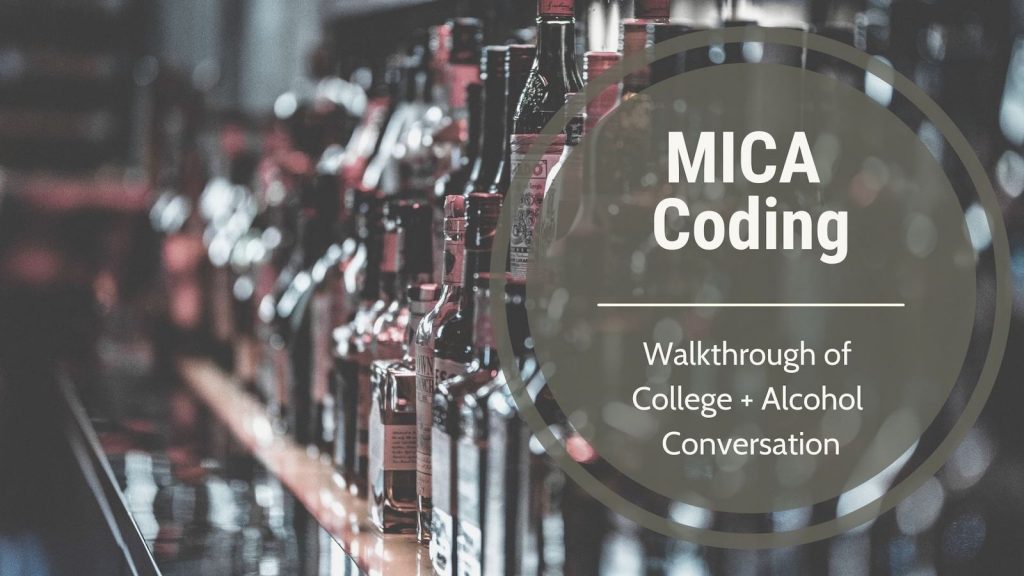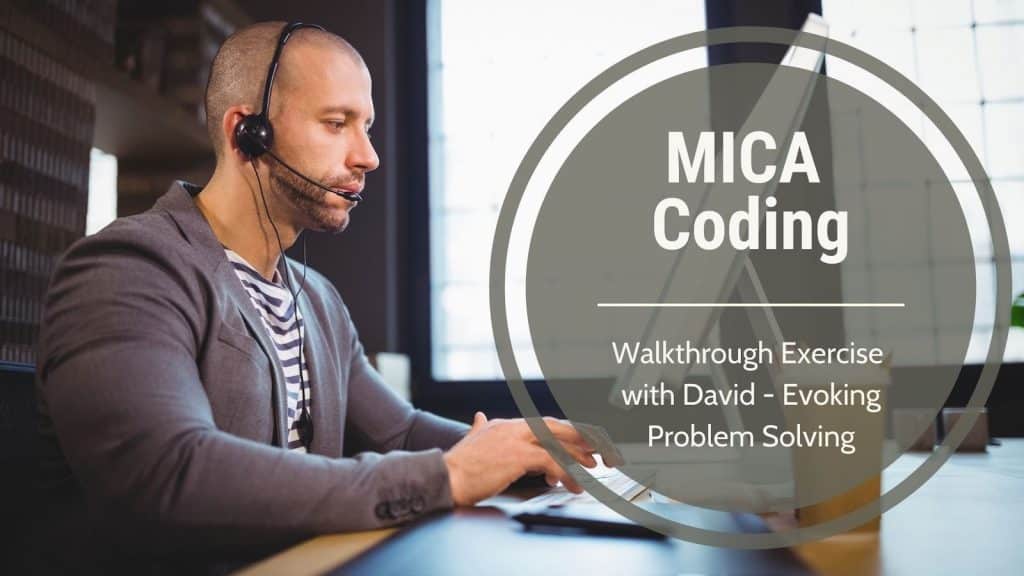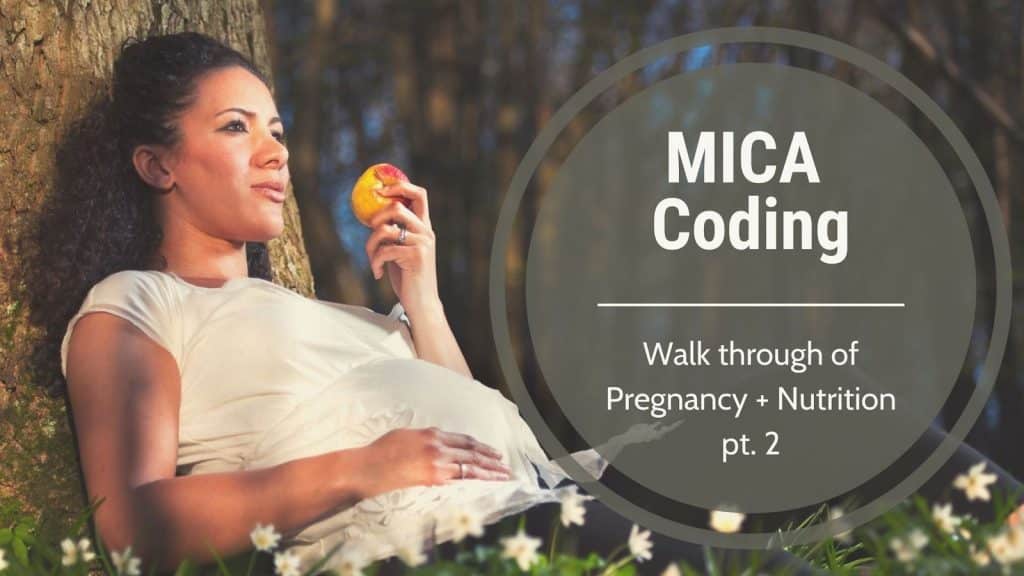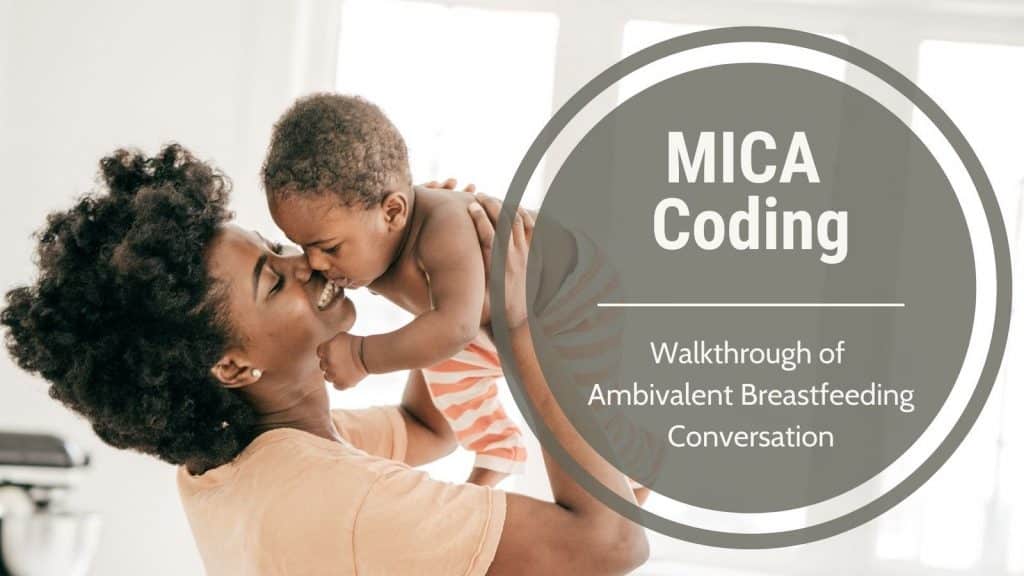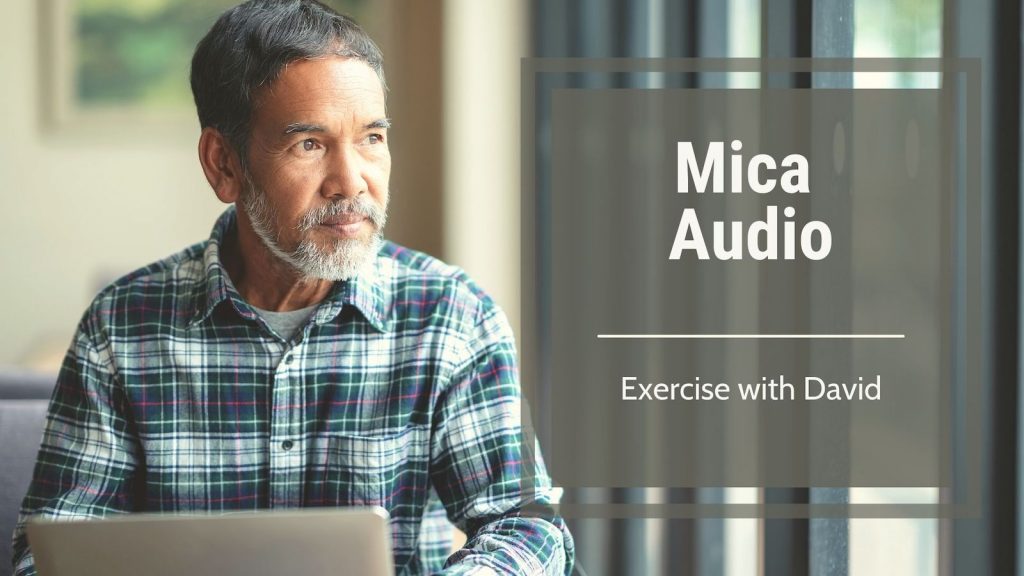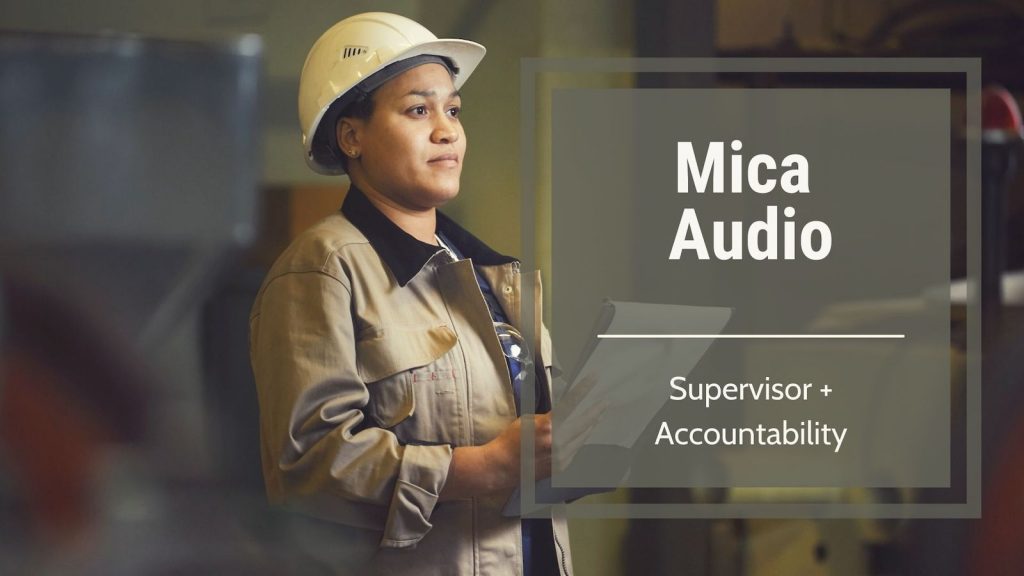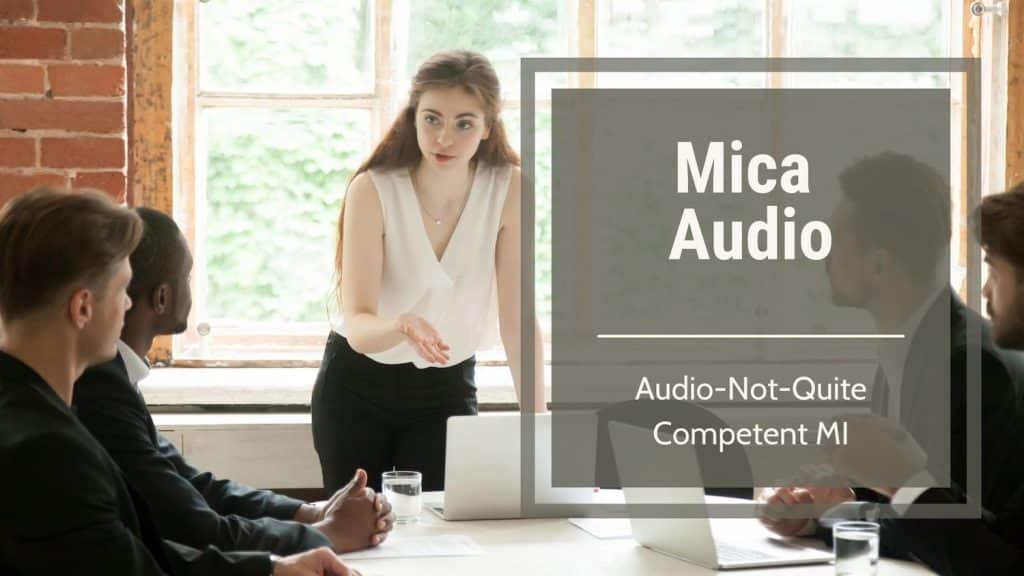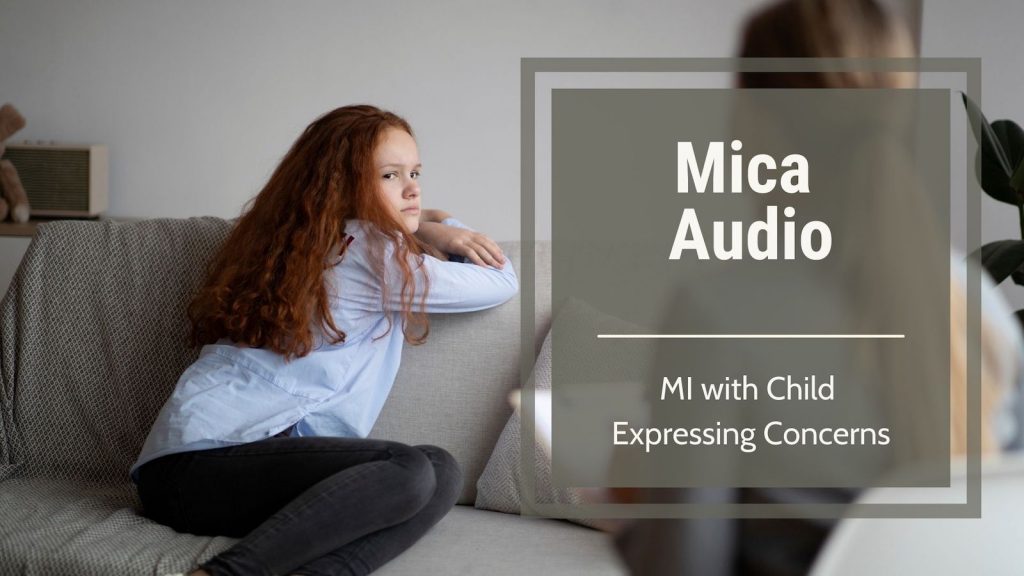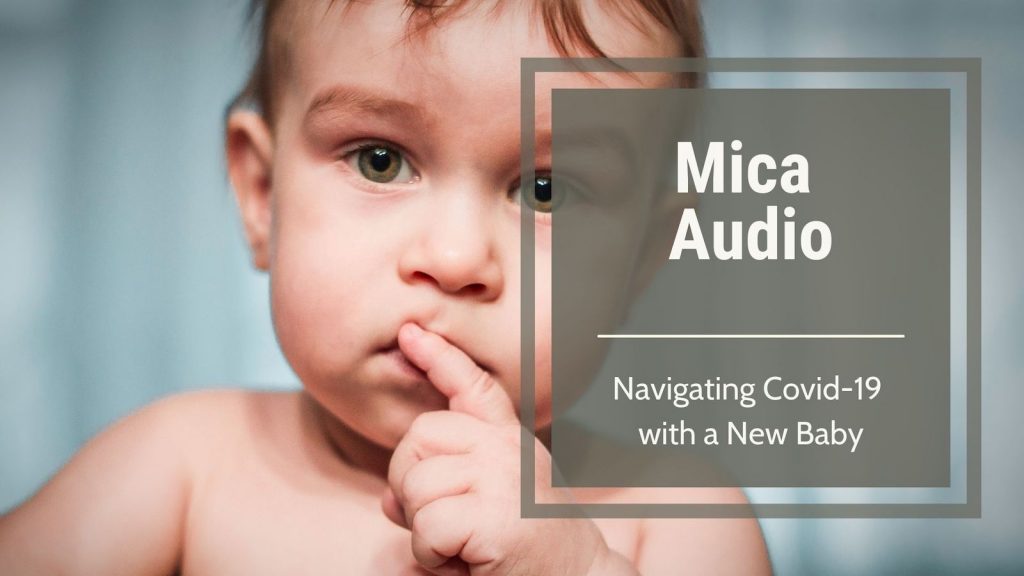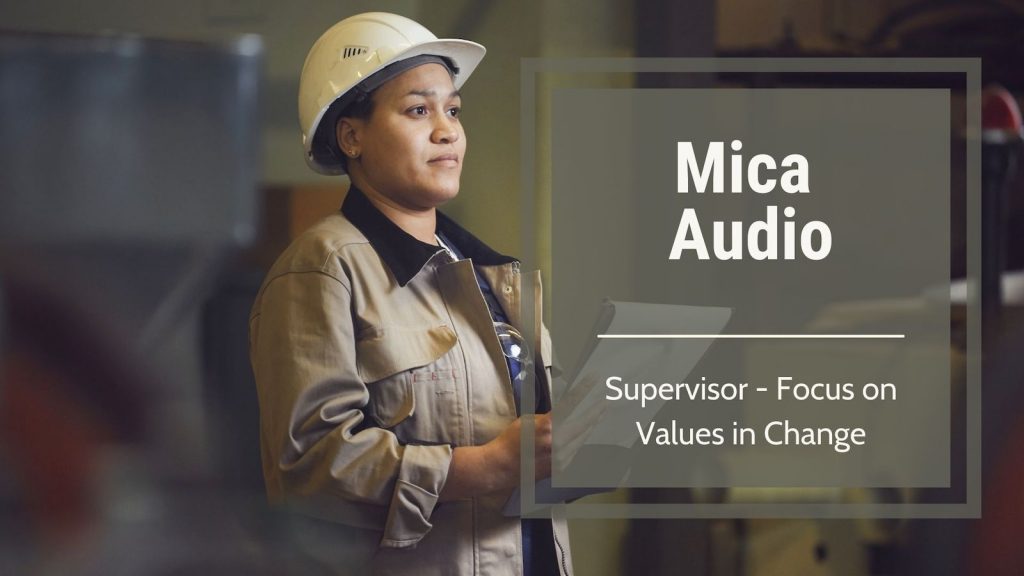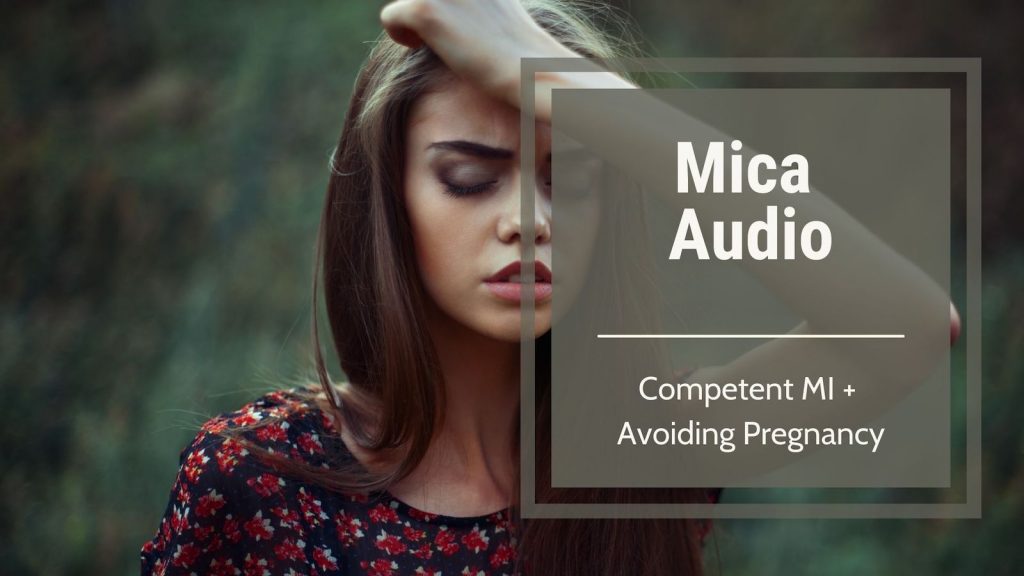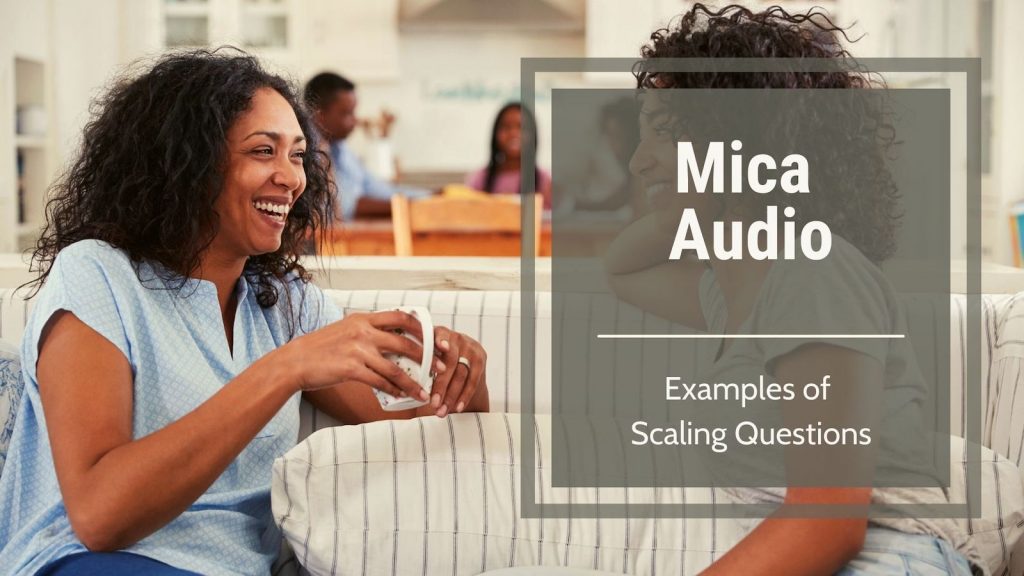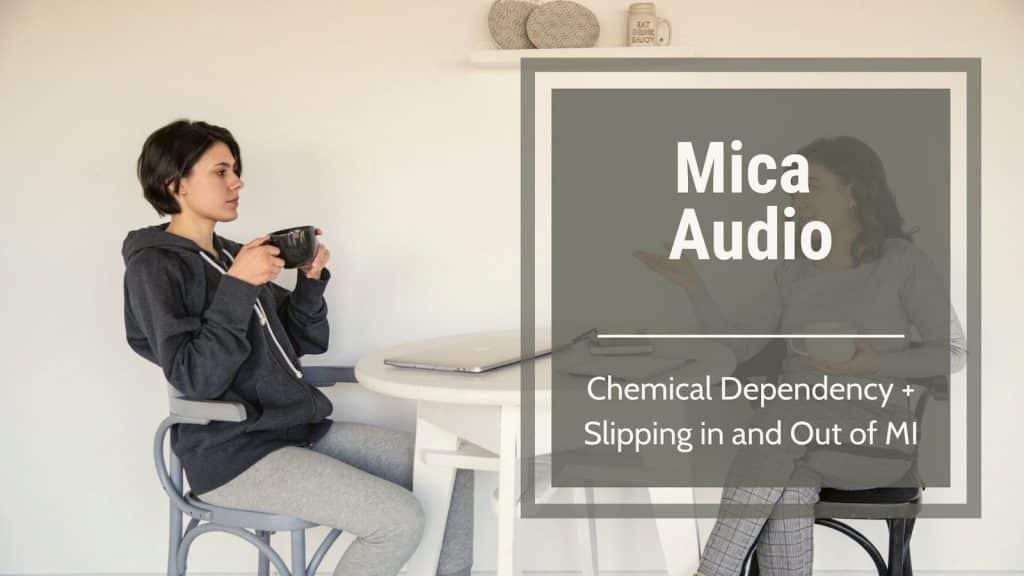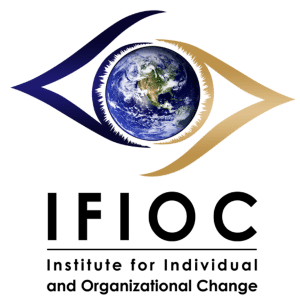
MICA Coding
Walkthrough Series
What is it?
An on demand video of John Gilbert coding conversations through the MICA (Motivational Interviewing Competency Assessment). These videos last 20 minutes to 60+ minutes!
How can it help?
Use these videos to guide yourself in professional development or use these videos to guide your employee’s in dedicated practice time. As we all know, to become skilled in something, it takes practice. Our goal is to help you or your agency have the tools available after training to continue the learning, in your day to day.
If you’ve taken our MICA course before, these videos are a great chance to practice your skills on coding, THEN watch, listen and LEARN as John coaches. This could be a form of IRR.
Explore the MICA Coding Archive if you…
- Have taken our MICA course and want to “test” your skills
- Want to learn more about the coding & coaching process
- Want to hear coaching and how “Motivational Interviewing” based conversations could be improved according to the MICA
- Want to learn more about the MICA
Affirmations
Affirmations are a micro skill within Motivational Interviewing, the more we affirm, call out strengths and empower others, the more autonomy and activation they will have.
Empathy
Accurate Empathy is a micro skill within Motivational Interviewing. There is a difference between empathy, sympathy and compassion, when we do accurate empathy, we truly are able to step into another’s shoes to see the world from their worldview. This helps clients feel heard and understood.
Engage
Engage is the first of the 4 process’s of Motivational Interviewing. During this stage, we aim to use these micro-skills: express empathy, use reflective listening, roll with resistance to help explore their ambivalence.
Evocative Questions
Evoking clients thoughts, ideas, feelings about change helps them to stay in control of the change process. Open ended questions can often help clients to dive deep into their own thoughts and feelings. Evoke is also one of the Motivational Interviewing intentions used on the MICA (Motivational Interviewing Competency Assessment)
Focus
Focus is the second of the 4 process’s of Motivational Interviewing. With the goal to strengthen motive behind change we want to help the client focus on their values, their goals and what they ultimately want.
Partnering to Problem Solve
Partnering is an intention on the MICA, which IFIOC co-authored. But how we partner to help our clients problem solve in a way that supports their autonomy is key to success in Motivational Interviewing. When clients get stuck, sometimes they need us to step in and help light up the path.
Creating a Plan
The third of the 4 process’s of Motivational Interviewing. This stage is trying to help your client elicit their own plan for change. Using micro skills like affirmations and highlighting their strengths to increase confidence in change.
Stages of Change
This is not a Motivational Interviewing concept but one we teach at IFIOC to help put the scaffolding in place to understand the change process. These 4 stages of change can help you identify where a person is at mentally with their change process. See IFIOC MI approach or rainbow sheet for more details.
Strategic Reflective Listening
Strategic reflective listening is key to Motivational Interviewing. We are not parroting others statements, but strategically shining light by reflecting key things they have said.
Types of talk (Change, Resistance, Sustain)
Understanding the types of talk is part of learning Motivational Interviewing. The more you understand the language you hear, the more you know how to move forward in the change process. Please see IFIOC’s MI approach or rainbow sheet for more information.
